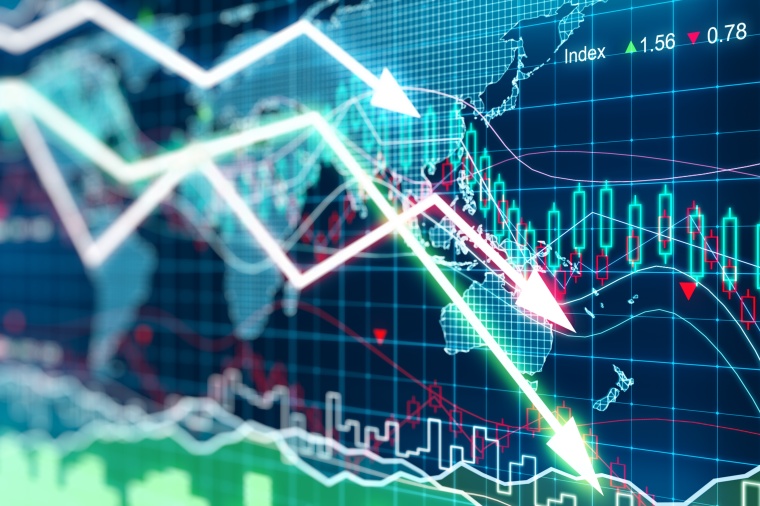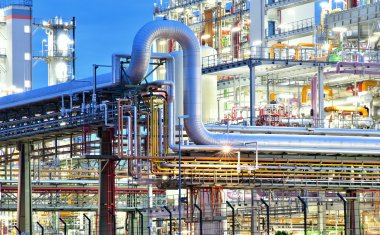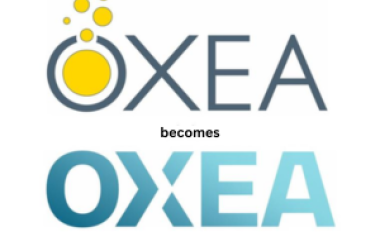German Chemicals Stagger under Energy Burden
The global chemical industry has seen its share of challenges, but the sector has traditionally mustered its considerable resources to manage them with a minimum of casualties. Crisis here, recession there, when all blows over, it‘s “business as usual.”
But between Covid and energy crunch, the bumpy ride of the past three years has left in particular European companies discouraged, and managers think it could take more than a modicum of imagination and innovation to be able to invest with confidence in the region again.
Where pressure from the energy side feels especially acute, to see the bottom line improve, many chemical producers are prepared to tap a source they usually hope will stay out of their affairs – government.
“The situation is dramatic”
At its end-of-year press briefing in Frankfurt on Dec. 15, the German chemical industry association Verband der Chemischen Industrie (VCI) brought the sector’s concerns to the forefront under the heading “the situation is dramatic.”
“Vladimir Putin not only has instigated a terrible war; he also has taken Europe hostage,” the association’s president Markus Steilemann, CEO of engineering plastics maker Covestro, asserted, referring to the invasion of Ukraine that cut off more than half of Germany’s natural gas supply.
With the pipelines out of service, the country’s chemicals economy – which is the biggest chemicals economy in the EU – is in a precarious state as winter gets under way, Steilemann said. But if the current horizon status looks dim, the outlook for next year may be just as dim, if not dimmer.
The dramatic rise in the cost of not only gas and electricity, but also of essential raw materials, is eating into the industry’s substance, and no relief is in sight before 2024 at least, the VCI president remarked.

Cost rises hard to pass down the chain
Across 2022, producers of chemicals and plastics as well as pharmaceuticals have been able to increase selling prices by 22%, but as their own cost increase is disproportionately higher, 80% of the association’s members are seeing their profitability decline.
Even if the companies’ implemented price hikes cushion the blow, so that the projected revenue rise of 17.5% to € 266.5 billion for the full year proves solid, around a quarter expect to end the year in minus, the association’s recent survey showed.
Prices for feedstocks and other starting materials have skyrocketed on the back of soaring energy, and not all can be passed through to customers, Steilemann remarked. Unusually, he noted, even pharmaceutical producers are under pressure as prices for many drugs are regulated.
For two-thirds of VCI members, order intake has steadily declined this year. As a knock-on effect, sales have shrunk as customers destock, even if the industry hopes the inflation-bloated final tally will show revenues higher than in still-corona-studded 2021.
To avoid substantial losses and conserve energy, in particular natural gas, almost 40% of firms questioned said they have either curbed production or expect to. More dramatically, nearly a quarter may quit their German home market for financially greener pastures in the US or Asia.
Output cuts break supply chains
With cuts in chemical production creating supply chain issues, downstream customers are facing product shortages. Most heavily affected are pigments, carbon- and glass fiber as well as hydrochloric acid, caustic soda, technical CO2, organic silicon compounds or ferric chloride, VCI’s research shows.
Procuring ammonia can also present a dilemma. Major producers, such as BASF, have curbed output as high energy prices make it cheaper to import than to manufacture.
Among market segments, petrochemicals have been hit especially hard, the association’s tally reveals. Manufacturers of inorganic base chemicals, polymers and speciality chemicals have cut output by up to 10% this year.
For 2022, VCI expects a 6% decline in production overall. In 2023, output could decline further, with sales also likely to be in the minus column, especially if demand from domestic customers continues to sink, it believes.
So far, the industry grouping is disappointed with the political sector’s efforts to deal with the energy crisis. While especially displeased with Brussels, producers also fault Berlin for failing to bring other member states in line with its own position. They also blame their government for dragging its feet on realising its own gas commission’s pledge to supply 70% of industry’s gas requirements at 7 cents per kilowatt hour.
German chemical makers are greatly displeased with the strings the EU wants to place on its energy price relief. Especially for large gas consumers, Steilemann said, the ceiling for obtaining support is far too low.
Under the rules, companies benefiting from a financial leg-up must build their own reserves if their EBITDA does not sink by at least 40%. Additionally, they must limit executive bonuses and dividend payments and maintain workforce levels of at least 90% as long as aid flows.
US Investment looks exceedingly attractive
Rather than imposing more regulatory shackles, producers think the EU should make it easier for revenue-generating projects to be implemented if it wants to avoid a corporate “brain drain” to other countries.
For companies exploring a production shift abroad, the new US Inflation Reduction Act (IRA), is exceedingly attractive, Steilemann remarked. Under the legislation, domestic and foreign companies can potentially pocket incentives ranging up to 70% of their investment cost.
European authorities should think about offering similar investment incentives, too, VCI director general Wolfgang Grosse Entrup has repeatedly hinted.
Author: Dede Williams, Freelance Journalist









